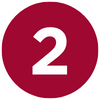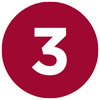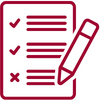Presenting at the EDUCAUSE Annual Conference provides an opportunity to build your professional network and experience lifelong learning with lifelong friends. Presenting a content-rich session individually or as part of a team is a wonderful way to share knowledge, experiences, and ideas. The conference's community-generated program will showcase future directions, best practices, stories of successful collaborations, lessons learned, and solutions to community-wide issues within various program tracks.
Whether you are a first-time submitter/presenter or a veteran presenter, we welcome your submission! Please read this page carefully before you begin work on your proposal, and be sure to submit it by the deadline: April 17, 2023.
Ready to get started? Please review the steps and Guidelines for Submission below.
Steps to Submit a Proposal
 Find out how to create an excellent proposal by reading this page and the helpful tips in the EDUCAUSE Presenter Concierge pages.
Find out how to create an excellent proposal by reading this page and the helpful tips in the EDUCAUSE Presenter Concierge pages. Develop a proposal in one of the program tracks/focus areas. If you prefer to download the CFP Template for advance work and/or collaboration, you may do so here: 2023 Call for Proposals Template.
Develop a proposal in one of the program tracks/focus areas. If you prefer to download the CFP Template for advance work and/or collaboration, you may do so here: 2023 Call for Proposals Template. Submit your proposal using the online submission form between March 20 and April 17, 2023. Submitters will be notified about decisions in late June.
Submit your proposal using the online submission form between March 20 and April 17, 2023. Submitters will be notified about decisions in late June. If your proposal is accepted, attend and present at the EDUCAUSE Annual Conference 2023 at McCormick Place in Chicago, IL (October 9 - 12), or online (October 18-19). (Registration is required of all presenters.)
If your proposal is accepted, attend and present at the EDUCAUSE Annual Conference 2023 at McCormick Place in Chicago, IL (October 9 - 12), or online (October 18-19). (Registration is required of all presenters.)
Guidelines for Submission
- ☐ Profile Requirement: An EDUCAUSE profile is required in order to submit a proposal, present, and register for the event. Please take some time before submitting a proposal to ensure all presenters have profiles. Presenters can create or update their profiles on the EDUCAUSE membership page.
- ☐ Presenter Registration: Presenters are responsible for registering in advance for the conference, paying the registration fee, and securing and paying for travel and lodging. (Exceptions include accepted full- and half-day preconference workshop presenters who may receive modest compensation in the form of an honorarium and a complimentary conference registration.)
- ☐ All accepted speakers will receive 25% off registration if registered with a special promo code and by the speaker deadline date of August 15. Only EDUCAUSE members are eligible. After this date, regular rates will apply. We ask that individuals not to register for the event until they receive notification of acceptance in late June.
- ☐ EDUCAUSE will not cover any additional costs such as travel and lodging expenses, online tools, assessments, books, or other presentation materials.
- ☐ Presenter Commitment:
- ☐ Acceptance notifications will be sent late June 2023. All selected presenters must agree to and complete speaker agreement forms in order to be confirmed for a session.
- ☐ Do not list presenters without their commitment that they will participate and that they agree to the terms and conditions for participation.
- ☐ EDUCAUSE reserves the right to edit presentation titles and/or edit the session abstract for program publications.
- ☐ Proposal titles and abstracts cannot be changed after the review and selection process.
- ☐ Session Resources: Presenters will be required to upload their presentations and/or supporting materials and resources prior to the conference. These valuable resources will then be posted for attendees to access beyond the session. If your proposal is selected, you will be provided with further instructions on uploading your presentation materials.
Diversity, Equity, and Inclusion Guidelines
The board and leadership of EDUCAUSE have established diversity, equity, and inclusion (DEI) as a critical priority for the association. Our Program Committee strives to develop a program that represents our diverse community. Before starting your proposal, you may want to reflect on the following:
- Does my proposal show how the session will reflect or address diversity, equity, and inclusion (including subject matter, individuals of all identities, and demographic characteristics)?
- If your session has more than three speakers, does it include diversity in gender, ethnicity, location and employment of speakers, and diversity in thought and opinion?
A Special Note to Our Corporate Community
Are you a co-presenter or with a corporation and interested in presenting at EDUCAUSE 2023? EDUCAUSE values the insights from the corporate community. Two options are available for you to contribute your thought leadership to this year's event:
-
Submit a presentation proposal through the call for proposals (CFP). You can go through the CFP process, in which case your proposal will be peer-reviewed and the Program and Selection Committees will determine acceptance to the program. If your proposal is accepted, there will be no fee to present other than the conference registration fee to attend. Deadline: April 17. For guidance on creating a winning corporate CFP submission, see our tips here>>
- Ratings from accepted corporate sessions in 2022 indicated that the topics were timely/hot/of significant interest to the community.
- Many of the accepted corporate presentations in 2022 were submitted with institutional partners. Try to pin down your institutional partners prior to submitting session proposals so that you can co-create the proposal and really elevate their voice. Our audience is keen to hear institutions talk about successful partnerships. Accepted sessions had specific universities mentioned in their session proposals.
- Higher rated sessions in 2022 indicated that session outcomes clearly tied to the goals for the session.
- Higher rated sessions represent our diverse community. Before starting your proposal ask yourself: Does my proposal show how the session will reflect or address diversity, equity, and inclusion (including subject matter, individuals of all identities, and demographic characteristics)?
- The session description should always paint a clear picture about what will happen in-session. This is your opportunity to expand beyond the abstract and tell the story behind the abstract. Adding creative session elements like a design-thinking exercise or activity for the audience helps. With so much competition around session space these days, it is just as important to have an innovative, engaging session as it is to have an innovative, engaging topic.
-
You can contact [email protected] to purchase an Industry and Campus Session, in which case you will receive specific instructions about how to submit your session details after the purchase is made. There is a fee with this option. Limited opportunities are available, and guidelines on conducting “thought leader” sessions must be followed.
Proposal Submission
Within the EDUCAUSE Annual Conference CFP submission site you will be asked the following information. In addition, each submission should include the names and biographies of the proposed presenter team.
Delivery Choices
Please review the session formats below and select the one that best fits your session structure, presentation style, and whether your proposal is for the in-person event in Chicago, October 9–12, or the online event October 18–19. Please note that all speakers for the in-person event must present in person. We are not able to accommodate online presenters onsite in Chicago.
Note: Although EDUCAUSE will make every effort to honor your preference for delivery format, we reserve the right to reassign the format based on space and program balance.
In-Person Session Delivery Formats
This type of session works best if your primary objective is to provide an overview of an innovative product or service. Select this delivery format if you want to showcase a product or service you implemented, built, or created. This is a great way to tell your “it worked for us” story. These will be 30-minute sessions. You may have a maximum of two presenters for this session type.
This type of session works best for presenters wanting to share opinions/thoughts on current, significant issues facing the profession. Critical conversation sessions involve the audience, and is a great opportunity for event attendees to share campus challenges and solutions through conversational exchange. By actively engaging audience participants in dialogue about hot topics or broad issues, presenters of these sessions will rely on the collective community experience among session attendees. These will be 30 or 45-minute in-person sessions. You may have a maximum of two facilitators for this session type.
These sessions are opportunities to share topics of interest, lessons learned, foresight, or case-making evidence related to a conference theme. Presenters, whether one person or a group, should include ways to actively engage the audience in the session. These will be either 30-minute or 45-minute in-person sessions. You may have a maximum of four presenters for this session type.
Workshops provide participants with a deeper examination of various topics, facilitated by leaders with extensive experience in those areas. They are highly interactive and give participants the chance to not only discuss in-depth approaches to challenges they are facing on campus, but share solutions and learn hands-on strategies to address the challenges on their campus. Preconference workshop presenters may receive modest compensation in the form of an honorarium and complimentary conference registration. Workshops will be scheduled the day prior to the main conference on Monday, October 9, 2023 and will be half- or full-day. You may have a maximum of four presenters.
Posters give participants and presenters the opportunity to share and examine problems, issues, and solutions in a casual, personal environment. Poster presenters are expected to engage with individuals, either one-on-one or in small groups, for short periods of time throughout the time slot allocated. Presenters will use a physical poster display to visually present their topics. These will be 45-minute sessions. You may have a maximum of two presenters for this session type.
Online Session Delivery Formats
Live sessions happen in real time, beginning at specific scheduled times within the online event platform. While watching the sessions, attendees can submit questions that presenters will have the opportunity to answer at the end of the session during a dedicated Q&A. These will be 20- or 45-minute sessions. You may have a maximum of two presenters for this session type.
Simulive presentations are prerecorded sessions that run at a scheduled time during the online program. These sessions are opportunities to share lessons learned, case studies, demonstrations/simulations of a technology or solution, and/or evidence of impact related to the proposed conference tracks. While the recording is being played, the presenters are actively engaged in the chat, answering questions and interacting with audience members throughout the 20-minute session. Because simulive sessions provide the opportunity for presenters to interact/answer questions in the chat pod, there will be no dedicated Q&A time, thus allowing the entire time for the recorded presentation. Note: Presenters will be required to attend their session on their scheduled date/time to monitor the chat. These will be 20-minute sessions. You may have a maximum of two presenters for this session type.
Lightning Talks give presenters the opportunity to share the highlights or core ideas of a topic in a fast-paced and lively (virtual) environment. These sessions are informal and interactive. Lightning Talk presenters are expected to present their short talk (5 mins) and then engage with attendees for Q&A (5 mins) A wide range of appropriate topics can be covered in a Lightning Talk, such as demonstrating the effect of a new tool or process at their institution or program, or the project itself. These will be 10-minute talks. You may have a maximum of two presenters for this session type.
Session Title, Abstract, Engagement Strategies, and Takeaways
Session Title
Create a short title that is creative, yet descriptive. We ask that you do not use institution, company, or product names anywhere in the title.
Abstract
This is a short description of what your session is about. If your proposal is accepted, the abstract is what most attendees will use to make decisions about which sessions to attend. What can you say that will encourage your colleagues to attend your session?
Session Takeaways and Participant Engagement Strategies
Clear session outcomes/takeaways and creative engagement strategies are essential components of every session. Proposal reviewers will closely examine and rate each proposed session's takeaways, which should clearly describe what participants will know or be able to do as a result of participating in the session. A successful proposal must also include the specific and creative ways in which the presenter(s) will engage with participants.
Tracks, Description, and Keywords
Program Tracks/Areas of Focus
The Program Committee has identified suggested areas of focus (tracks/topics) for 2023. Preference will be given to the proposals that sufficiently reflect what you have done or are planning to do in these areas.Your proposal may fit under multiple track options, so just choose the track that best represents your content and goals. Or if you’re not sure, select “Help Me Decide!”
Security, privacy, and compliance continue to be top-of-mind initiatives at each of our organizations. With the pace of change picking up speed and the focus on privacy and security at the start rather than as an afterthought, we seek proposals focused on strategic themes, as well as highly technical and tactical talks. Also welcomed are proposals relating to proactive initiatives to protect against increasingly sophisticated attacks and breach response events.
Explore the application of data, information, and analysis to institutional challenges. The goal? Build a data-informed culture to facilitate decision-making at all organizational levels and across all areas. Topics include data ethics, privacy, data literacy, and data-informed decision-making.
Where we work, how we work, and the work we do are changing. Our institutions are working hard to adapt to the financial, social, technological, and pandemic-driven changes in our workforce. Explore leading practices and lessons learned, discuss the future of employment, and engage with others facing similar challenges as our workforce and work continue to evolve.
The practices of IT service delivery and digital transformation rely on the successful convergence of information systems, cloud computing infrastructure, and a support-and-skills model that makes it all work across the breadth of higher education institutions, not just central IT. Modernizing infrastructures can increase agility and flexibility, bolster data protection, and encourage innovation. Topics in this track include infrastructure services and enterprise architecture/systems, as well as frameworks and strategies for effective, efficient IT service management, including agile, DevOps, ITIL, chatbots, and pedestrian ERPs.
Our organizations need to change, but technology and innovation can be disruptive. How is technology changing your organization? What’s new, what’s innovative, what’s next, and how can it serve higher education? Explore artificial intelligence, ubiquitous technology and connectivity, next-generation ERPs, digital transformation initiatives, and other emerging technologies as we look into the future together while discussing the impact innovation and cutting-edge technology are having now.
IT plays a key role in serving the needs of the entire institution. IT leadership must ensure that technology resources and efforts are strategically aligned with the institution’s vision and goals. Leaders must also ensure that the IT organization is a strategic partner in the operations of the institution. What successes or challenges have you experienced that would be helpful for your peers?
The digital student experience is evolving to support learners from recruitment and throughout their careers. Technology informs, supports, and transforms the way colleges and universities recruit, educate, and retain students and connect with alumni. Institutions with adaptable and student-centered technology designs can effectively connect students with the campus through engagement in institutional activities and academic success tools to enrich their experience. Explore the ways higher education has successfully responded to the changing expectations of learners, families, and alumni.
IT is a key partner in support of institutional research missions. IT supports aspects of research administration, such as pre- and post-award support, interaction with federal grant systems, regulatory compliance, intellectual property management, and infrastructure support for research activities, which includes centralized versus decentralized approaches, high-performance computing, advanced networking, informatics, and enabling multidisciplinary, interdisciplinary, and inter-institutional work.
What effective principles and practices for teaching and learning have you established? How have you anticipated/adjusted to the needs of your students, encouraged successful learning, or transformed student learning and engagement? Some areas of focus include artificial intelligence, learning analytics, learning tools, learning spaces, hybrid learning (learning modalities), and accessibility.
Not sure which track to pick or can’t find one that’s a fit for you? Choose “Help Me Decide,” and the program committee will help you select the best track for your session submission.
Session Description
This is where you get to more fully describe the plan for your session and the importance, relevance, value, uniqueness and/or interest to our community of higher education professionals. You’ll describe how the session will unfold (timetable), the key findings or points you will present, supporting evidence, and so forth.
Keywords
These are areas of specific interest and will help attendees fine-tune their personalized schedules. Optional: You will be asked to provide three keywords that relate to your presentation.
Diversity, Equity, and Inclusion & Additional Information
DEI Content: You will be asked to explain whether your session reflects the value of diversity, equity, and inclusion and, if so, how does it?
Submitter Comments: We have an open field for you to provide any comments you would like the Program and Selection Committees to know.
 Selection Process
Selection Process
Proposals are selected to ensure the conference offers a comprehensive, non-promotional, not commercially biased, objective, and diverse program. Proposals that clearly describe innovative and creative work will receive the highest priority in the selection process. Attention will be given to diversity of institutions/organizations, presenters, and geographic location.
The identity of proposal submitters and proposed presenters will be hidden to reviewers. Proposals will be reviewed by the Conference Program Committee and peer reviewers using the following selection criteria:
- ☐ Relevance of Topic: Is the topic of relevance, importance, value, and/or interest to higher education?
- ☐ Session Outcomes Achievability: Is there alignment between the stated session outcomes and the proposal description?
- ☐ Quality of Submission: Does the proposal demonstrate quality, as measured by accuracy, clarity, comprehensiveness, and depth of demonstrated understanding of the topic?
- ☐ Engagement/Knowledge Transfer: Does the proposal provoke discussion, audience engagement, and/or facilitate knowledge transfer and development of new competency?